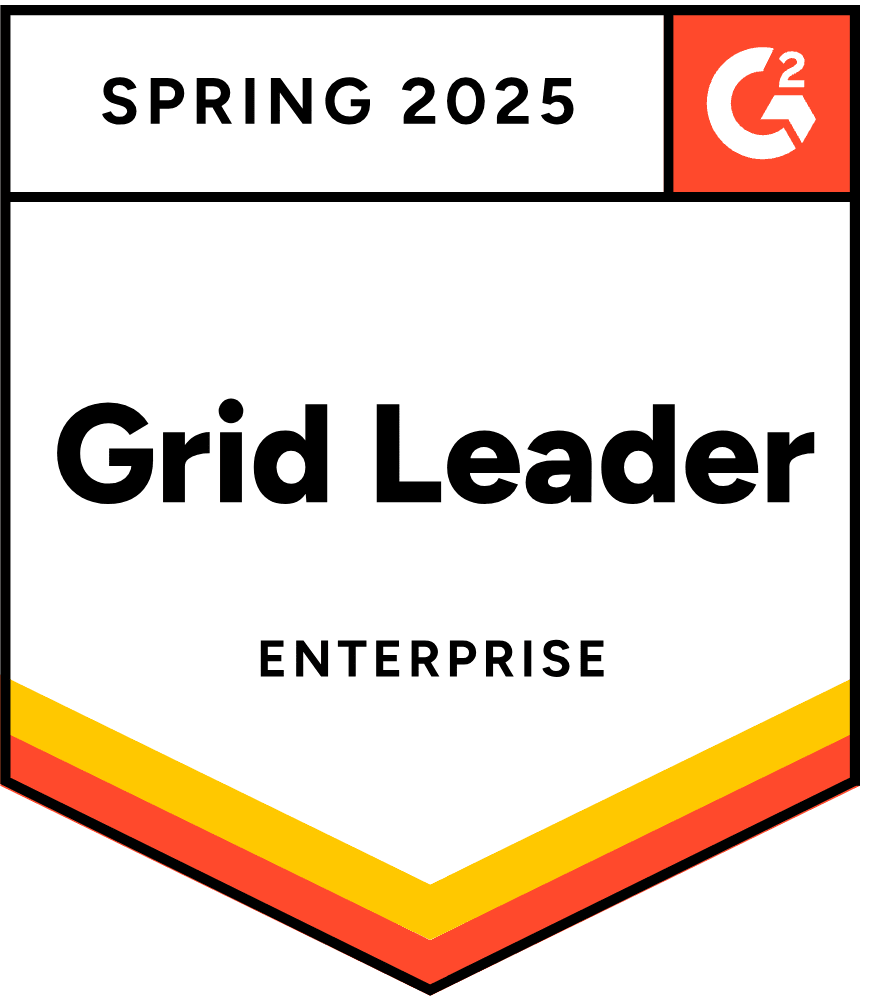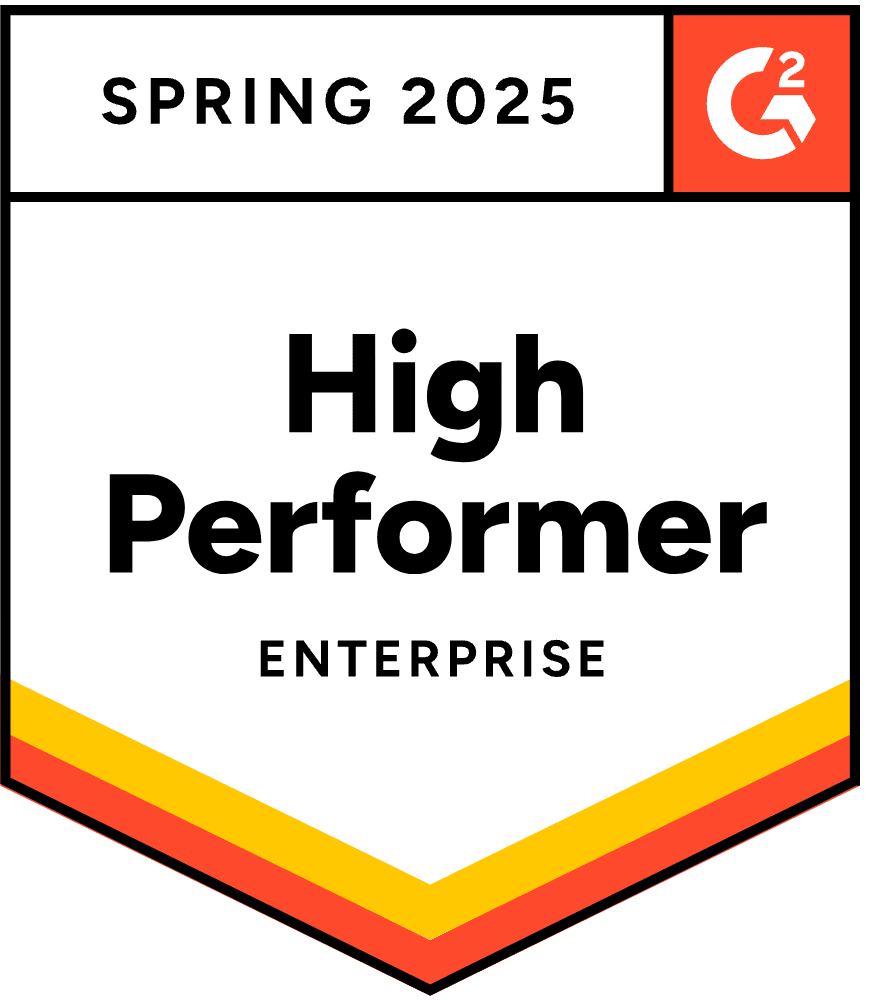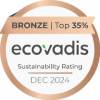Introduction
Here we are, in the last quarter of 2024, and it’s time we start planning for the year ahead! We know the old methods won’t cut it anymore – the world of talent acquisition is changing so rapidly. And for recruitment professionals, staying ahead of these shifts isn’t just about keeping up with what’s trendy – it’s about staying ahead of the competition and attracting top talent in a crowded job market.
With candidates demanding more flexibility, technology reshaping how we recruit, and diversity, equity, and inclusion (DE&I) a non-negotiable, 2025 will require a whole new mindset. So, if you want to hit the ground running next year, it’s crucial to stay updated on the latest recruitment marketing trends.
Let’s take a look at those recruitment trends 2025!
Recruitment Trends 2025
1. Rise of AI and automation in recruitment
AI and automation are already making waves in recruitment, but in 2025, they’re set to become indispensable. Last year, many organizations started using AI for basic tasks like resume screening, scheduling interviews, and sorting applicants by qualifications. While this helped folks in recruitment save time and cut down manual effort, it’s just the beginning.
When we think about recruitment trends in 2025, AI will go beyond being a time-saver to becoming a decision-making partner. Along with handling repetitive tasks, AI-powered tools will also help recruitment professionals make smarter hiring decisions. By analyzing vast amounts of candidate data like work history, skills, and cultural fit, AI will offer deeper insights that will help identify the best talent faster. Recruitment marketing will also be automated through programmatic advertising that targets the right talent at the right time at the right place.
Well, we’ve done the analysis for you! Take a gander at this go-to source for a complete understanding of how AI can be used in TA.
Are You Evaluating the Pros and Cons of AI for Talent Acquisition?
2. Hiring for skills over resumes
Skills-based hiring is set to become a must-have approach in the coming year. Rather than focusing solely on traditional qualifications, recruitment professionals are zeroing in on candidates’ specific skills and adaptability. With rapid changes in technology and work environments, organizations are looking for talent that can grow with them.
To keep up with this trend, recruitment folks should prioritize skills assessments, hands-on evaluations, and focus on potential rather than just experience or degrees to ensure they bring in the right talent with the ability to thrive long-term.
3. Soft skills will matter more than ever
Building on the growing focus on skills-based hiring, the emphasis in 2025 will shift not just to what candidates can do, but how they do it. Soft skills like communication, collaboration, and adaptability have become just as critical as technical abilities. As hybrid work environments and diverse teams become more common, recruitment professionals need to prioritize candidates who can navigate these dynamics seamlessly. To get ahead, incorporating behavioral interviews and soft skills assessments is key to identifying talent that strengthens both productivity and team culture.
Soft skills aren’t just nice to have – they’re the glue that holds a winning team together!
4. Focus on Gen Z candidates
People in recruitment need to adjust their strategies for a new generation entering the workforce – Gen Z. Born into a digital world, Gen Z candidates bring fresh perspectives, a desire for flexibility, and a strong sense of purpose. In 2025, attracting this generation means offering not just competitive pay but clear career growth, work-life balance, and a commitment to values like diversity and sustainability. To effectively engage Gen Z, recruitment professionals should leverage social media, offer meaningful work experiences, and create transparent, purpose-driven employer branding.
5. Social recruiting will become powerful
With Gen Z entering the workforce, social recruiting has never been more critical. In 2025, recruiting through platforms like LinkedIn, Instagram, and even TikTok is essential for connecting with new talent. Social media offers recruitment professionals a direct line to candidates, allowing them to showcase company culture, share employee stories, and also engage with passive talent. It’s important to prioritize building authentic, engaging content and using targeted ads to reach the right audience and turning social channels into powerful recruitment marketing tools.
Discover how data, insights, and the ability to engage with candidates at scale can be your secret sauce to streamline the talent sourcing process.
Move Your Talent Sourcing From Chaotic to Strategic!
6. Flexibility will be the new norm
As companies push for return-to-office (RTO) policies, the demand for flexibility continues to rise – especially from younger generations and tech-savvy candidates. In the coming year, hybrid and remote work are expected to solidify as the new norm, and companies that embrace these models stand out in the competitive talent market.
Flexibility isn’t just a perk anymore; it’s a deal-maker… or breaker. Recruitment pros should focus on offering remote or hybrid options to attract top talent, while also ensuring their recruitment marketing highlights these flexible opportunities, positioning the company as up-to-date and adaptable.
7. Building employee advocacy and influencer programs
Potential candidates trust real employee stories far more than traditional ads, making your current team the most authentic voice for attracting new talent. Empowering employees to share their experiences on social media and act as brand ambassadors can significantly boost your employer brand’s reach. Recruitment professionals should focus on building structured advocacy programs, encouraging employees to share company culture, and even leveraging internal influencers to amplify recruitment efforts. This authentic, employee-driven content will attract top talent while reinforcing a positive company image.
8. Diversity, equity, and inclusion will continue to shine
DE&I remains a top priority in 2025, but it’s evolving beyond just meeting quotas. Companies that truly embrace DE&I are building more innovative, adaptable teams and standing out as employers of choice. Candidates – particularly Gen Z – are actively seeking workplaces where they feel represented and valued.
For recruitment professionals, this means not only broadening the talent pool but also creating an inclusive candidate experience. Highlighting your DE&I initiatives on the career site, in job postings, and across channels can attract diverse talent and foster a more equitable workplace that resonates with today’s job seekers.
9. Emphasizing internal mobility and talent retention
According to a recent report, 50% of TA teams are now looking to fill roles with internal talent – up from 44% last year. Companies are discovering that nurturing talent from within not only saves on recruitment costs but also fosters employee engagement. It’s no longer just about competitive pay; candidates want clear pathways for growth and development.
Highlighting internal advancement opportunities in your recruitment marketing can attract ambitious candidates ready to grow with your organization, ensuring you keep your best people for the long haul.
10. Prioritizing employee well-being
Candidates want employers who genuinely care about their mental health and offer resources like counseling, flexible work options, and wellness programs. By showcasing your commitment to employee well-being in your recruitment marketing, you’ll not only draw in the right talent but also foster a positive workplace culture that enhances retention and productivity.
11. Embracing recruitment media diversification
Traditional job boards are no longer enough; recruitment professionals must explore various platforms to connect with potential candidates. Video content is leading the charge, allowing companies to showcase their culture, values, and job openings in engaging ways. From virtual job fairs to employee testimonials on social media, video content continues to grow as a powerful recruitment tool.
12. Elevating your EVP game
A strong employee value proposition (EVP) will be a game-changer for attracting and keeping top talent. It’s not just about flashy perks but creating a workplace where people feel truly valued, supported, and part of something meaningful. Think flexible hours, wellness initiatives, and clear growth opportunities – all wrapped in a culture that walks its talk. Showcasing your EVP through real employee stories and personalized career pages will set you apart in a competitive job market.
13. Revamping learning and development (L&D)
Learning and development (L&D) is no longer just a nice-to-have, it’s a deal-breaker. With evolving technology and shifting job requirements, upskilling and career growth are essential to attracting and retaining top talent. Standard training won’t cut it anymore; companies need to explore innovative methods like gamification, microlearning, and VR to keep employees engaged and future-ready. Offering robust L&D programs isn’t just about skills; it’s about showing employees that their growth matters, fostering loyalty, and building a more competitive workforce.
14. Era of hyper-personalized employee experiences
In 2025, a one-size-fits-all workplace won’t cut it. Employees crave experiences tailored to their unique needs and aspirations. With AI and predictive analytics, companies can design personalized career paths, craft benefits packages that match individual priorities, and deliver real-time feedback. This hyper-personalization boosts engagement, loyalty, and productivity, creating a workforce that feels valued and motivated to thrive.
15. Bringing in recruitment chatbots
Recruitment chatbots will be an indispensable part of the hiring process. From screening resumes to scheduling interviews and answering FAQs, these bots handle the heavy lifting, freeing up HR teams for strategic, human-centric tasks. Plus, with their ability to engage candidates, boost application completion rates, and reduce bias, chatbots are transforming hiring into a faster, fairer, and more efficient experience.
16. Data-driven recruitment
Guesswork is out and data is in. Using analytics to fine-tune your hiring process isn’t just about efficiency – it’s about results. Data-driven recruitment doubles your chances of improving hire quality while reducing bias and boosting diversity. By leveraging insights to pinpoint the perfect candidates and continuously refining your approach, you’re not just hiring smarter—you’re hiring fairer and faster.
Conclusion
As we look ahead to recruitment trends in 2025, it is clear that recruitment marketing is shaping up to be an eve more dynamic space! With trends like skills-based hiring, work flexibility, and a focus on employee well-being, it’s clear that the future of talent acquisition will keep us all on our toes.
So, recruitment marketers, get ready to adapt because the key to success is not just keeping up with trends but also having a little fun along the way. After all, happy recruiters lead to happy candidates!
Here’s to a successful and rewarding year ahead in recruitment!
See us in action to boost your company’s productivity. Follow us on Twitter and LinkedIn for more hiring insights!
Summary
The blog “Top Recruitment Trends and Strategies 2025” explores how technology, evolving candidate expectations, and workplace shifts are reshaping recruitment. From AI-driven hiring and skills-first approaches to Gen Z’s priorities and the growing importance of soft skills, the blog consists of strategies to stay ahead in 2025.
FAQs
How will AI transform recruitment in 2025?
AI in recruitment will go beyond just automating repetitive tasks. It will analyze vast candidate datasets to provide actionable insights, improving the quality of hires and optimizing decision-making. AI tools will also reduce unconscious bias, enhance candidate matching, and personalize outreach, ensuring a more efficient and equitable hiring process.
Why is hiring for skills more critical now?
In today’s work environment, roles are evolving faster than ever. Hiring for specific skills ensures companies are equipped with adaptable talent, capable of learning and growing with industry advancements. This approach also widens the talent pool by focusing on potential rather than credentials, helping businesses build future-ready teams.
What’s driving the focus on soft skills?
As hybrid and remote work environments become the norm, soft skills like communication, emotional intelligence, and adaptability are important for collaboration and innovation. These skills help create cohesive teams, bridge cultural differences, and ensure employees can navigate challenges effectively, making them as critical as technical expertise.
How can companies win over Gen Z candidates?
Gen Z expects more from employers than just competitive pay. They look for transparent career growth opportunities, workplaces that prioritize diversity and inclusion, and a healthy work-life balance. Plus, they favor companies with a strong social and environmental commitment, seeking roles where their work contributes to meaningful change.
What is the future of recruiting in 2025?
Recruiting in 2025 will be more data-driven, personalized, and inclusive. AI and automation will handle repetitive tasks, allowing recruiters to focus on building relationships and assessing cultural fit. Recruitment strategies will prioritize skills-based hiring, diversity, and sustainability, ensuring businesses attract adaptable and socially conscious talent for the future.
What will hiring look like in 2025?
Hiring in 2025 will be faster, smarter, and more candidate-centric. Companies will leverage AI-powered tools for precise talent matching, predictive analytics to forecast hiring needs, and programmatic job advertising for targeted outreach. Employee value propositions will focus on flexibility, well-being, and impact, as candidates demand purpose-driven workplaces.
What are trends in the staffing industry for 2025?
Staffing in 2025 will see a surge in hybrid work models, freelance talent platforms, and skills-based hiring practices. AI will streamline processes, from verifying credentials to payroll management. Employers will emphasize candidate experience and adopt strategies to attract diverse, globally distributed talent pools.
What are the HR trends for 2025?
HR in 2025 will center on employee well-being, upskilling, and workplace flexibility. Advanced analytics will provide actionable insights for workforce planning, while AI will enhance engagement and retention strategies. DE&I initiatives and a focus on sustainable practices will play pivotal roles in shaping company cultures.














